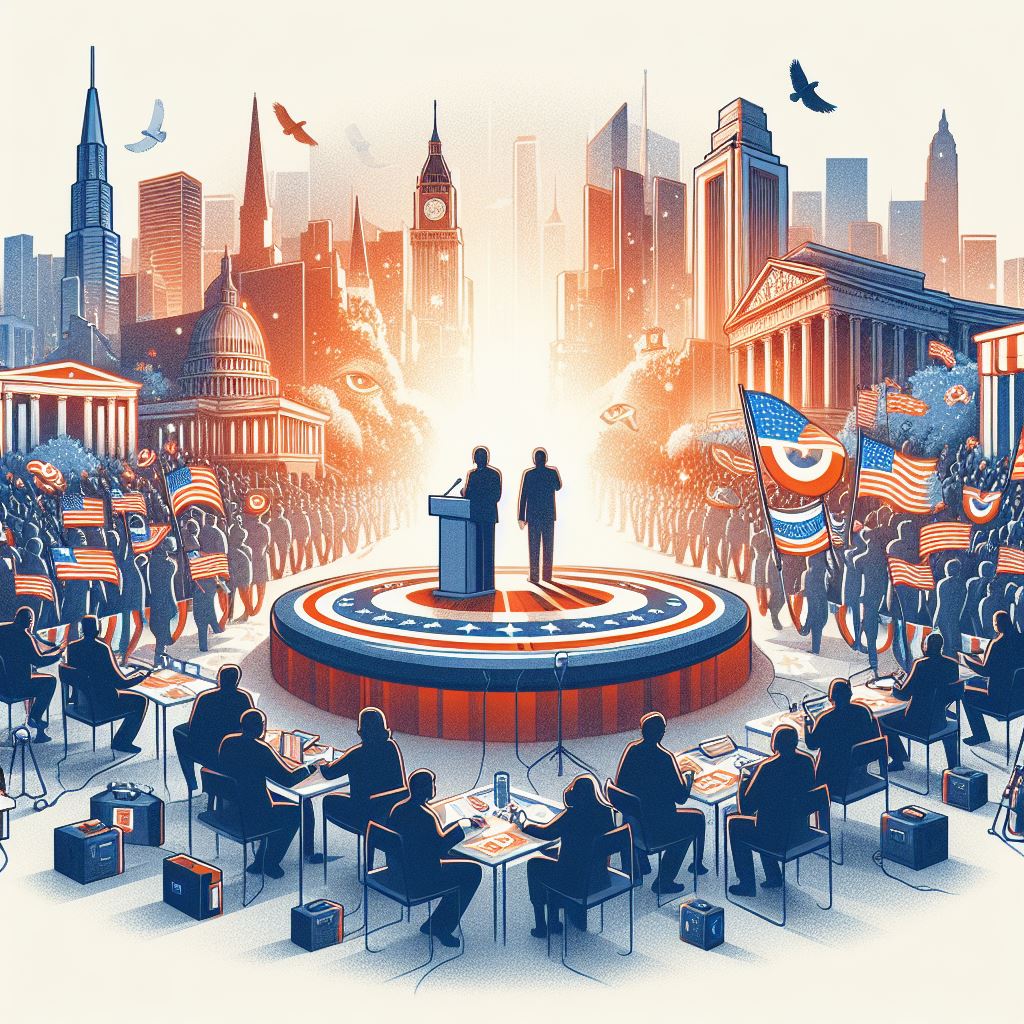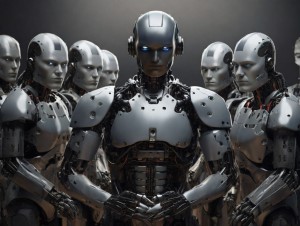Hillary Clinton delivered a stern warning during a crucial talk at Columbia University: 2024 will be the “ground zero” for AI election manipulation due to the combination of historically high levels of worldwide election activity with the spread of cutting-edge generative AI technology facilitating AI misinformation.
Clinton’s vision highlights the necessity of confronting the impending threat posed by AI-driven deceit against the backdrop of growing worries about the spread of false information and the decline in public confidence in democratic institutions.
More than four billion people on the earth are eligible to vote in some capacity this election year, making it a historic one. By 2024, generative AI will likely have a permanent impact on politics at least. She said,
“This is the year of the biggest elections around the world since the rise of AI technologies like ChatGPT,”
Deepfake photos, manipulated audio, and other software-generated content will probably be utilized in an effort to influence or alienate voters, erode public trust in electoral systems, and foment discord. That’s not to argue that elections will be rigged, or that everything should be trusted. Rather, everyone has to be aware of the potential uses and abuses of artificial intelligence.
AI misinformation’s ascendance and its threat to democracy
Artificial Intelligence (AI) disinformation is a major threat to electoral politics and a cloud over global democratic processes. A new era of deception has been ushered in by the development of generative AI technology, which allows for the seamless production of audiovisual content that is nearly exact replicas of real things.
The realm of political manipulation has expanded significantly since Clinton’s election defeat in 2016, as she correctly points out, and the dissemination of deepfake images and audio has exacerbated the power of misleading narratives. Thinking back on her own experiences as a target of coordinated misinformation operations, Clinton emphasizes how important it is to take on the enormous difficulties that AI-driven fabrication presents.
Michael Chertoff, a former secretary of homeland security, emphasizes the sneaky ways that AI-enabled disinformation can sway public opinion and undermine confidence in democratic institutions, echoing Clinton’s worries. Chertoff alerts us to the dangerous possibility that focused disinformation operations could take advantage of holes in the information ecosystem and undermine the fundamentals of democratic government in a time of hyper-personalized content distribution. With this in mind, the elections of 2024 become a test run by AI to address the existential issue of election tampering.
Safeguarding democracy in the digital age
Protecting democratic processes from manipulation and distortion is crucial, as academics and policymakers alike contend with the threat of AI misinformation hanging over the electoral scene. The spread of artificial intelligence (AI)-generated content raises serious concerns about the validity of political discourse and calls into question the effectiveness of conventional countermeasures against disinformation.
Strong protections and resilient democratic institutions are more important than ever at a time when information is weaponized. Also, Election threats this year are “even more dangerous,” according to Chertoff. Previous democratic elections around the world have involved efforts to sow discord or sway votes in favor of or against a specific candidate, such as Russia’s election meddling in 2016 and its Macron hack after a year in France.
Do those who have learned about deepfakes assume that everything in the world is a deepfake? As a result, even solid proof of inappropriate behavior must be discounted. And that essentially provides corrupt government officials and autocrats the freedom to do whatever they please. Against a backdrop of misinformation and skepticism, democracy’s survival depends on our ability as a people to separate fact from fiction and protect the sacredness of voting integrity.




